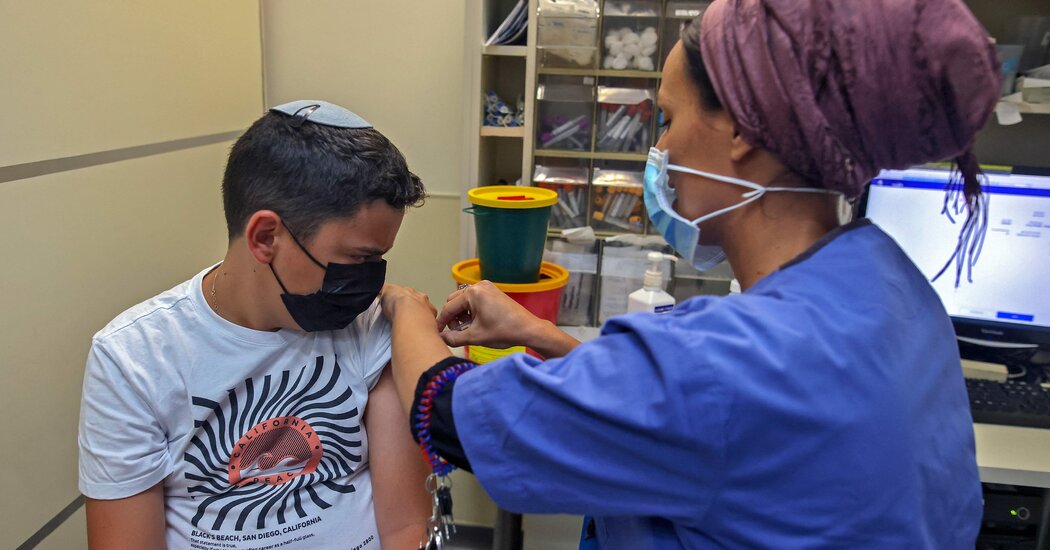
Boys aged 12 to 15 have a small but increased risk of heart problems after receiving a second dose of the Pfizer-BioNTech vaccine, Israeli researchers reported on Wednesday.
Myocarditis, or inflammation of the heart muscle, occurred in one of 12,361 boys of that age group within a week of receiving a second dose, the study found.
The cases were mild, and the side effect remains uncommon. Moreover, several studies have shown that the risk of myocarditis after Covid is much higher than that after vaccination.
Still, the Israeli figure is higher than the Centers for Disease Control and Prevention estimate of one case per 16,129 vaccinated adolescents aged 12 to 17. Israeli researchers previously reported that nearly 11 of every 100,000 boys and men aged 16 to 29 were at heightened risk of myocarditis after vaccination.
Although the new results are based only on the Pfizer-BioNTech vaccine, other studies have found that the incidence of myocarditis may be higher with the mRNA vaccine made by Moderna. Myocarditis can manifest as chest pain, shortness of breath and the feeling of having a fast-beating, fluttering or pounding heart, according to the C.D.C.
Some European countries paused the use of the Moderna vaccine in male adolescents because of the risk. In the United States, only the Pfizer-BioNTech vaccine is authorized for use in adolescents and children 5 and older.
Concern about heart inflammation may have prompted the Food and Drug Administration to ask Pfizer-BioNTech and Moderna to enroll more children in their vaccine trials. Even so, Pfizer’s trial of the vaccine included just 567 boys aged 12 to 15 — too few to detect uncommon side effects.
The new study tracked hospitalizations for myocarditis from June 2 to Oct. 20, 2021, through a surveillance system of Israel’s Health Ministry. During that time, 404,407 adolescents ages 12 to 15 received a vaccine dose, and 326,463 adolescents received a second dose.
The researchers found 18 reports of hospitalization for myocarditis. They excluded two of the cases because of “reasonable alternative diagnoses” and two others because they occurred 46 and 70 days after the second dose — too long after the vaccination to be related, the researchers said.
Of the remaining 14, one was in an unvaccinated adolescent, one in an adolescent who had received the first vaccine dose within 21 days, and 12 cases within a week after the second dose. The results were published in The New England Journal of Medicine.
All of the cases were clinically mild, and the adolescents were hospitalized for an average of three days. None were readmitted during 30 days of follow-up.
The researchers estimated that myocarditis occurs in 0.56 male adolescents per 100,000 after a first dose, and in 8.09 per 100,000 after a second dose. The corresponding risk among girls of that age was negligible.
The study may have underestimated the risk of myocarditis, because the researchers looked only at boys who were hospitalized for the condition.




